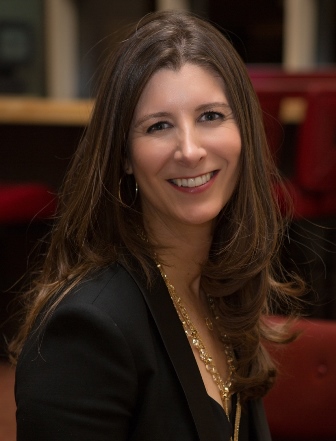Andrea Szew is the founder of Los Angeles law firm Szew Law Group, which has specialised in US immigration for the entertainment industry for over 15 years.
In this time where feelings of anxiety, uncertainty, and fear surround the US Immigration system, it is critical to have reliable information that can help guide productions when deciding what US visa to apply for during this ever-changing environment. The latest executive orders by President Trump, along with the policy changes that have occurred as a consequence, have directly affected the entertainment industry. Productions are now more cautious than ever when trying to avoid the rumored delays, complications, or extra costs that come along with working with foreign nationals in the US. However, even with these new hurdles that might be in the way of some productions, it is important to keep things in perspective and realize that visas are still being issued and productions continue to work in the US. The difference now is that it is important to be smarter about the choice of visas, the time frame to process the visas, and where the visas will be adjudicated. The following are some quick tips and alternatives that can help avoid or minimize possible issues that productions may face when looking for US visas.
Be ready and more prepared than ever before when entering the United States
Realize that Customs Border Patrol (CBP) has absolute authority when someone enters the US. Therefore, make sure to have the documentation needed to secure entry: a copy of the entire petition that was filed with immigration (“USCIS”) along with the original approval notice. Be conscious and knowledgeable of the type of visa issued and its parameters. Be aware that CBP can look through phones, laptops, iPads, or any personal belongings, so if there is anything that would cause suspicion or doubt of your stated intentions, make sure there is a good explanation or simply do not bring them.
Time is of the essence now more than ever
In the entertainment industry, having time is a luxury; however, when it comes to processing US visas in today’s environment, it is a necessity. Now that there is more scrutiny on petitions filed with USCIS along with stricter requirements that the guilds are demanding of visa applicants prior to issuing consultation letters, it is imperative to allow enough time to prepare a strong and complete petition that has no room for questions.
There are other options besides the O visa for productions
The O visa is often the preferred visa for cast and crew, but it is not the only option. With the heightened level of scrutiny placed on petitions filed with USCIS, it is important to look for other visa options that might provide longer, more flexible terms that may avoid USCIS all together:
The Australian E-3 visa!
Australians have the priceless opportunity to utilise the E-3 visa, which is a professional visa exclusively for Australians. Whereas the rest of the world must wait in line with the hope of getting an H-1b, Australians have the E-3 at their fingertips. This visa can be extremely helpful and a great alternative for professionals within the industry. This visa is not necessarily for actors, but it is a perfect option for producers, directors, VFX professionals, screenwriters, editors, composers, and many others. This visa is applied for directly at the US consulate in Australia, avoiding all the costs and delays that occur when dealing with USCIS in the United States.
E-2 – The Rolls Royce of Visas
The E-2 investor visa is an excellent option for a production company with multiple projects which needs to bring in critical and essential cast and crew who might not qualify for any other type of visa. The E-2 visa is applied for directly at the US Consulate in Australia and within approximately 5 days of the interview, the passport is back in the hands of the needed cast or crew ready to go. This option avoids dealing with the heightened scrutiny of USCIS and the guilds, paying large filing and expedited processing fees, and unnecessary delays due to possible requests for evidence.
Make sure to ask questions…lots of questions
During this time of so much change and confusion, it is key to have a lawyer who is tapped into the immigration changes and, just as importantly, the tax implications of any visa that is chosen. Never stop asking questions or seeking alternatives until reaching a satisfactory level of confidence about the choice of visa. Be very careful with lawyers who do not answer questions or stop taking calls as soon as one too many questions are asked. The wrong choice or information could bring down a production!


